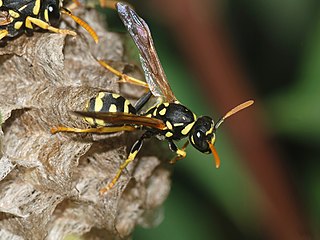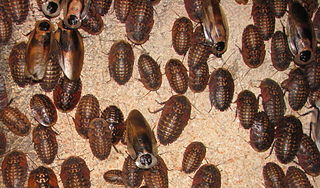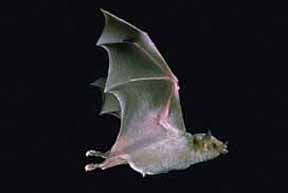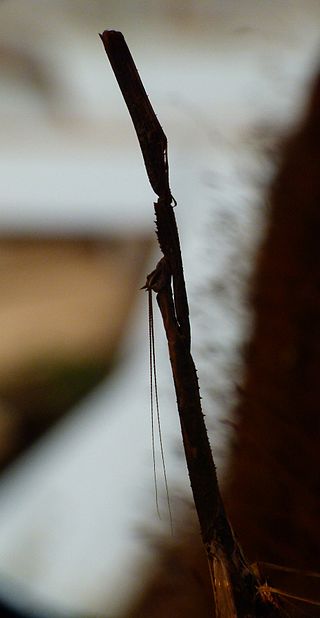
Polistes is a cosmopolitan genus of paper wasps and the only genus in the tribe Polistini. Vernacular names for the genus include umbrella wasps, coined by Walter Ebeling in 1975 to distinguish it from other types of paper wasp, in reference to the form of their nests, and umbrella paper wasps. Polistes is the single largest genus within the family Vespidae, with over 200 recognized species. Their innate preferences for nest-building sites leads them to commonly build nests on human habitation, where they can be very unwelcome; although generally not aggressive, they can be provoked into defending their nests. All species are predatory, and they may consume large numbers of caterpillars, in which respect they are generally considered beneficial.

The family Gryllidae contains the subfamilies and genera which entomologists now term true crickets. Having long, whip-like antennae, they belong to the Orthopteran suborder Ensifera, which has been greatly reduced in the last 100 years : taxa such as the tree crickets, spider-crickets and their allies, sword-tail crickets, wood or ground crickets and scaly crickets have been moved or elevated to family level. The type genus is Gryllus and the first use of the family name "Gryllidae" was by Francis Walker.

Giant cockroaches, or blaberids, are the second-largest cockroach family by number of species. Mostly distributed in warmer climates worldwide, this family is based on the American genus Blaberus, but much of the diversity is also found in Africa and Asia.

The Saussure's long-nosed bats or Mexican long-nosed bats form the genus Leptonycteris within the leaf-nosed bat family Phyllostomidae. Like all members of the family, they are native to the Americas. According to ITIS, three species are currently recognised, though varying placements of the populations into species and subspecies will be encountered.

Bandwings, or band-winged grasshoppers, are the subfamily Oedipodinae of grasshoppers classified under the family Acrididae. They have a worldwide distribution and were originally elevated to full family status as the Oedipodidae. Many species primarily inhabit xeric weedy fields, and some are considered to be important locusts:

Platyrrhinus is a genus of leaf-nosed bats in the tribe Stenodermatini of family Phyllostomidae. Twenty-one species are known:

Archimantis is a genus of praying mantis found in Australia. These species are ranging from 150 mm to 180mm, and can be quite aggressive when full adult.

Stagmomantis is a genus of mantis consisting of 22 species found in the Americas.

Gryllus is a genus of field cricket. Members of the genus are typically 15–31 mm long and darkly coloured. The type species is Gryllus campestris L.: the European field cricket.

Acromantis is a genus of Asian praying mantids in the subfamily Acromantinae of the family Hymenopodidae.

Toxoderidae is a family of praying mantises.

Rivetina is a genus of praying mantises in the family Rivetinidae.
Oligonyx is a genus of mantises in the family Thespidae.

The Matapalo broad-nosed bat is a species of leaf-nosed bat described in 2005. It is found in South America.

Podoscirtinae is a subfamily of crickets in the family Oecanthidae.

Photinaidae is a family of mantises in the order Neotropical Mantodea, in the superfamily Acanthopoidea. There are about 11 genera and more than 40 described species in Photinaidae.

Gryllini is a tribe of crickets and typical of the family Gryllidae. Species are terrestrial, carnivorous or omnivorous and can be found in all continenents except Antarctica.

Pseudovates is a genus of praying mantis in the family Mantidae. There are more than 20 described species in the genus Pseudovates, and are found in North, Central, and South America.

The Gonypetidae are a new (2019) family of praying mantids, based on the type genus Gonypeta. The name was created by Westwood and it has been revived as part of a major revision of mantid taxonomy; the subfamily Iridopteryginae having been moved here from the obsolete family Iridopterygidae. The Gonypetinae include Asian genera transferred from the obsolete taxa Amelinae and Liturgusidae.

















